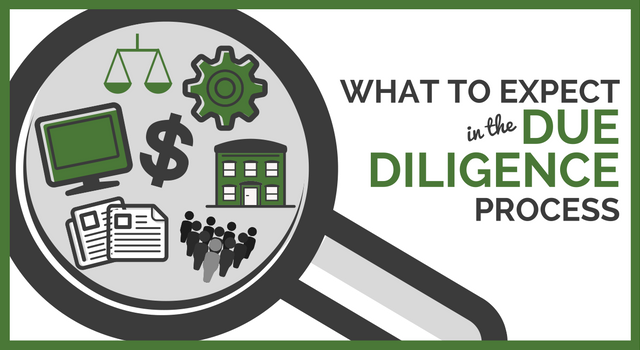Business Owner Resources
We’re committed to providing business owners with the best private equity experience possible. Part of that commitment is assisting founders in equipping themself with the proper tools to enter the selling process informed and prepared.
Valuation
Understanding your business’ worth.

Additional Resources
List of Services
PARTNERSHIP VIDEO
Watch how these values came to life with our investment in Sailfish Boats.
5 Things to Expect in the Due Diligence Process

The due diligence process is a critical step in selling your company and can significantly impact your ability to get the valuation deserved. During this phase of the sale, your prospective buyer takes a deep dive into your company information to gain a better understanding of your business and assess any potential risks. The investor will have learned quite a bit about your business by this point, but during the formal review, they will involve their lawyers and accountants to confirm information you’ve already shared and uncover new items.
The more complex your operations and financial circumstances, the longer this process can take, but it will typically take three to six months. Knowing what to expect heading into the process can help things run successfully and smoothly. Here are a few things to consider:
1) Prepare before you begin: As a seller, you’ll be disclosing everything that an investor or new owner of your company would need to know to successfully operate the business. This includes Finances, Operations, HR, Legal, Intellectual Property, Technology, Customers, Insurance and more. The biggest mistake we often see is that companies begin organizing this information only after they get a diligence request list from a buyer. It is always best to prepare documentation, particularly financial information, ahead of a process. If you do not, you may have some cleaning up to do before an outsider can accurately absorb and assess your information.
To gain a better understanding of the types of items you’ll be asked to produce,
take a look at the sample diligence request list we’ve posted here .
Some of the items the buyer might request won’t apply or be material to the valuation of the company. If you both agree after some discussion, you may not need to supply everything they initially request.
2) Know your numbers: Do not let a bidder tell you how much money you make! With assistance from your accountant, you should have a keen sense of your financial performance, namely how much EBITDA your company has generated and would generate on a normalized basis. The word “normalized” is used often in this process and is often as much of an art as it is a science. “Normalized” essentially seeks to adjust for any one-time or “abnormal” costs (or even revenues).
3) Information should be carefully shared with strategic bidders: A logical buyer of your company may be a strategic buyer that can derive value from potential cost-cutting synergies. However, it is important to note that the information you disclose during diligence could be damaging should the sale fall through. You’re essentially sharing proprietary information with a competitor, so it’s important to be mindful of that going into the process. Share only information that is required to assess valuation, which should exclude customer lists and any detailed pricing information.
You should both sign a legally-binding non-disclosure agreement that protects your interests throughout the process. Ultimately though, if a competitor has your information, an NDA cannot put Pandora back in the box.
4) There will be several meetings and/or phone calls: The investor will want to have many meaningful conversations with you and key management team members about the business before the transaction is complete. These sessions will capture the questions that aren’t answered by files and reports. It will also help both sides gain a better understanding of mindset and vision for the future of the company.
The buyer may also be interested in speaking to current customers or vendors to confirm information and learn more about the nature of your relationships with them.
5) Diligence is a Two-Way Street: While the prospective buyer is digging into the details of your company, you should also be conducting diligence on them to determine if they are who you believe them to be. They should offer up information you request on other relevant investments they have made and provide introductions to executives from other companies they have purchased or invested in for you to speak to as references.
The diligence process can give you a new perspective on your company. Having a set of fresh eyes on the ins-and-outs of your company will undoubtedly bring to bear questions you haven’t considered and issues you may not have been focusing on before the process began. Even if the sale is not completed, you’ll likely have several action items to take away from the process that could improve your company in the long run.
At Georgia Oak, we’re committed to enhancing your business and helping founders grow their legacies
to their fullest potential. If you find we’re a good fit for your next step, please reach out to us.



